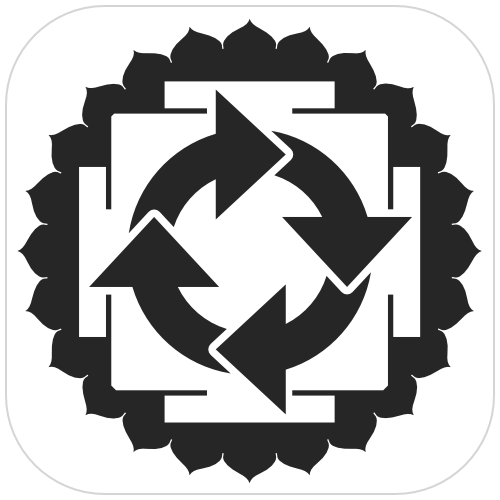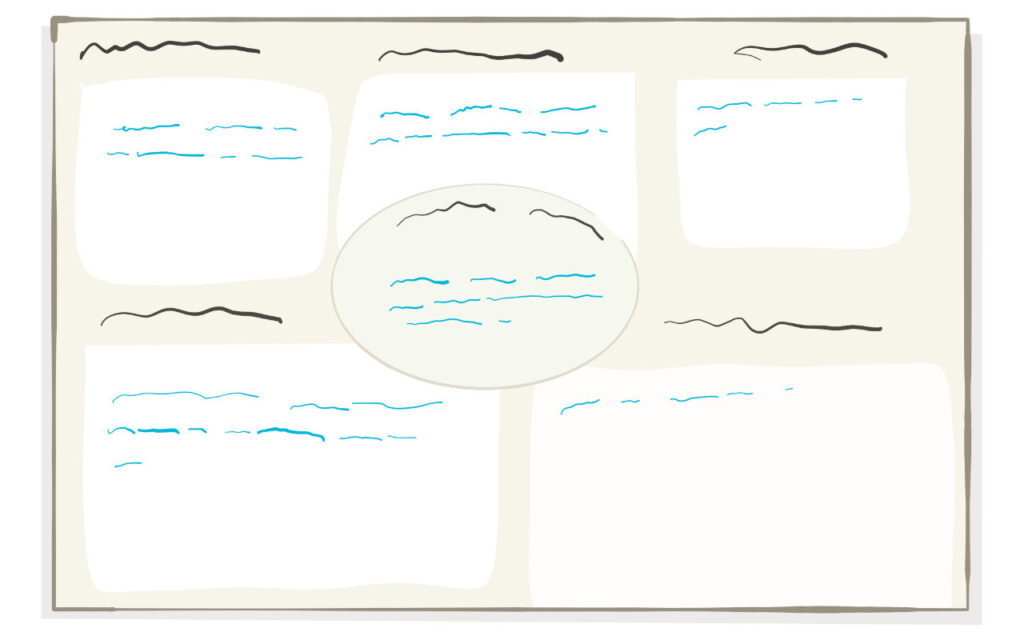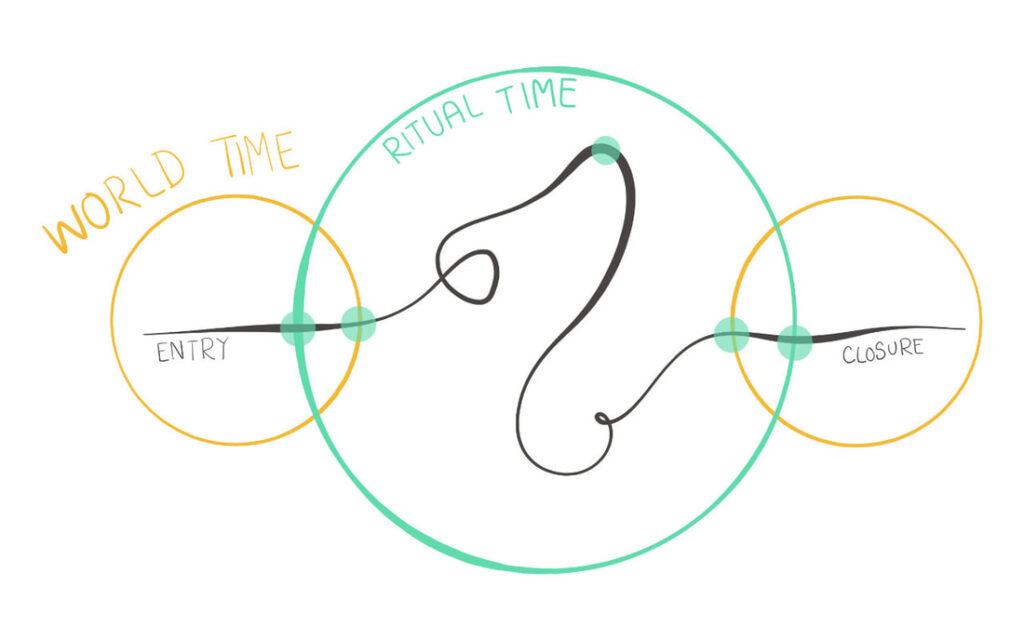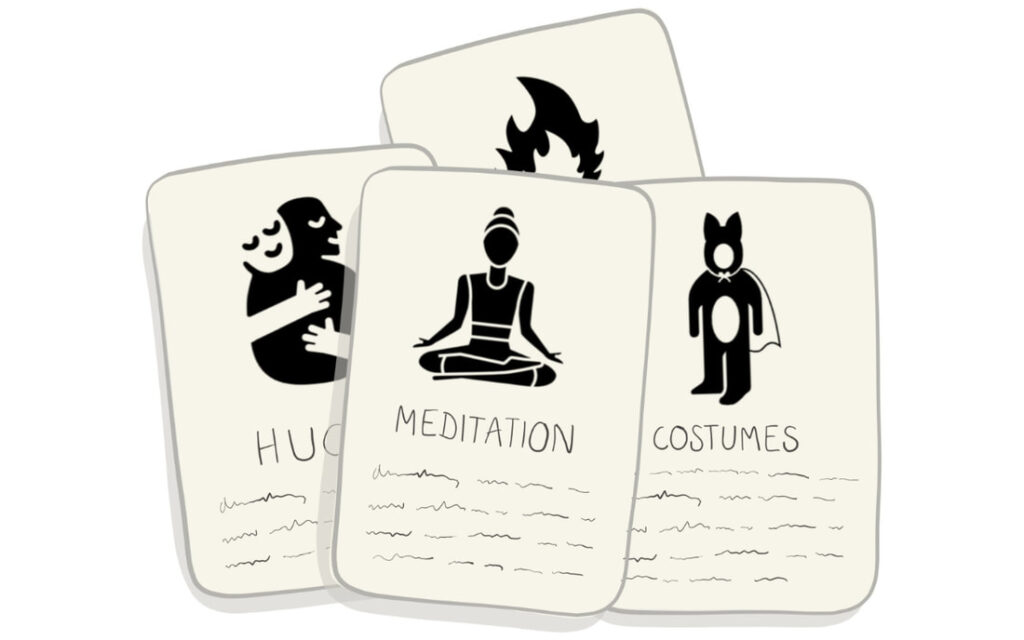Make your own rituals.
There are many life transitions that our modern cultures don’t recognize as requiring significant effort to navigate: changing careers, moving cities, ending relationships, starting a new project, anticipating impending loss, and so on.
Rituals can be a powerful way to help people deal with these transitions.
Unfortunately, traditional and religious rituals either ignore these situations entirely, or do a poor job at helping.
This toolkit helps you design rituals for yourself and your communities.
This is a secular toolkit designed to be useful for managing energy, processing emotions, and navigating transitions. It does not require you to believe in any spiritual or religious tradition.
In this toolkit
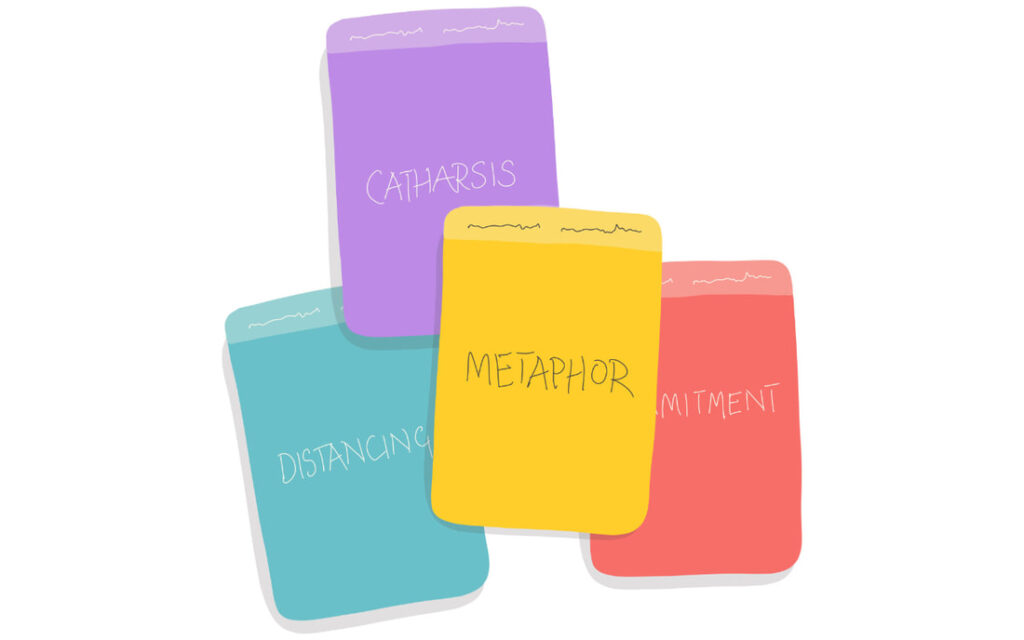
Intent cards
Clarify the intention & desired outcomes of the experience for you and others. There’s a screen version.
Rituals work because they provide a
container for making transformations and finding meaning
Read more about the thinking behind our approach on the theory page.
This toolkit is focused towards reactive, transitional, and seasonal rituals.
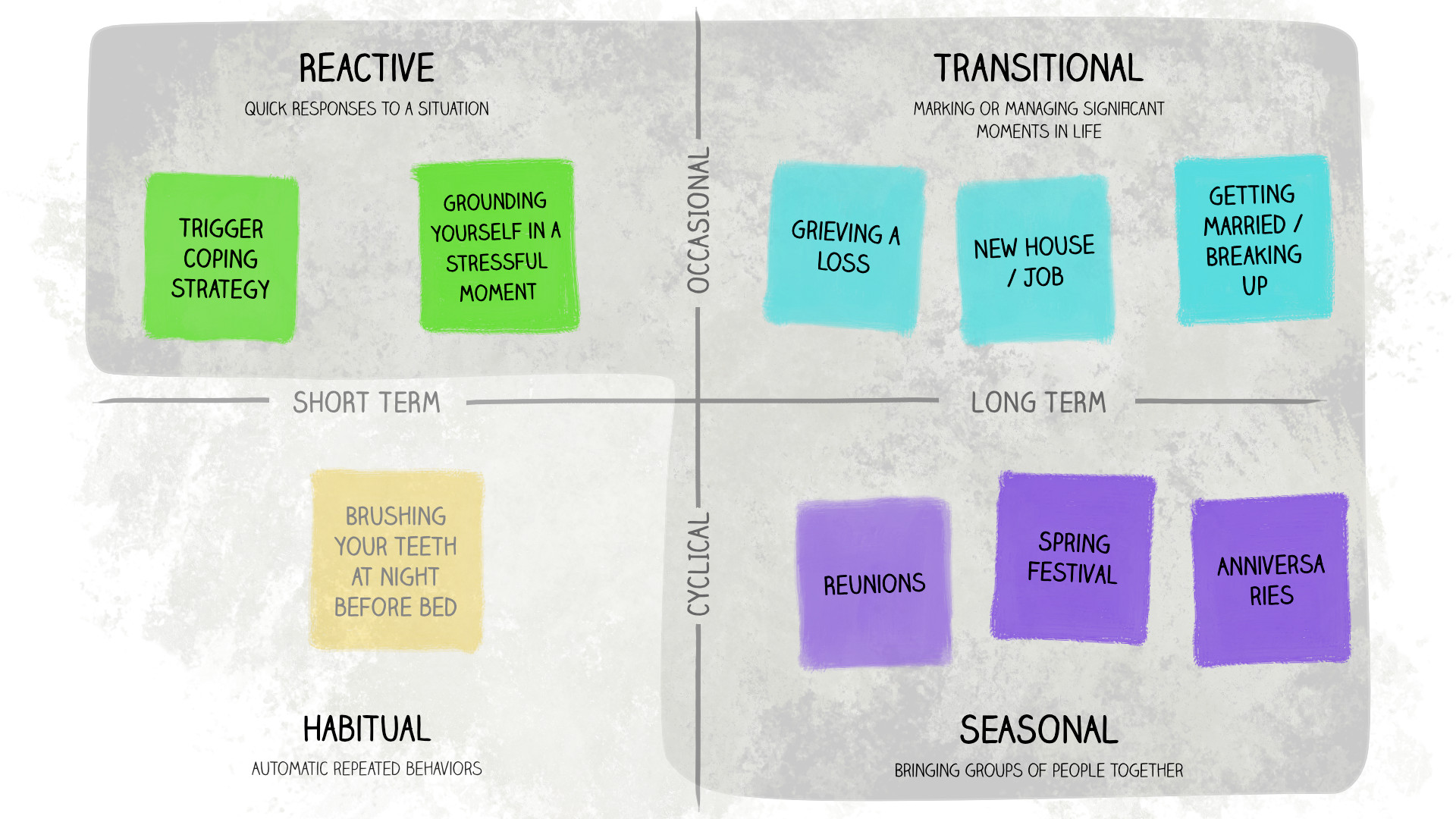
There are a lot of people working on behavior change and designing or managing habits, and this is a hotly studied topic with a huge variety of tools. There are not, however, a lot of resources for designing secular rituals of the other kinds, and those are what we aim to support.
FAQ
Who is this toolkit for?
We have designed this toolkit for a wide range of people. If you have lots of facilitation and event design experience, you’ll find this toolkit most useful primarily as a way to structure your thoughts. If you’re an absolute beginner at designing experiences, you’ll find a lot of value in following the whole process.
Either way, we hope you’ll find plenty of opportunity to use your own creativity and insight.
Do I need to believe anything specific to design rituals with this toolkit?
This approach doesn’t ask you to believe anything; it is explicitly designed to be secular and not reference any particular spiritual or theological tradition. You can use this toolkit whether you’re deeply religious or flamingly atheistic.
Aren’t rituals the same as habits?
Not quite. This toolkit is not focused towards building habits. For that, you may need more precise psychological tools, such as the BJ Fogg behavior model. Though many rituals are repeated and habitual, we are mostly focused on supporting situations for which there are few good tools and which not many people are working on. Here’s more on our definition of “ritual”.
How can I get a physical copy of the toolkit?
Currently, you’ll just have to grab the PDFs from the links above and print them yourself. This works well with the context canvas and the flow map, but the cards take a lot more effort. We hope to set up an ordering system soon by which you can buy a set of the cards, but that will take some time. If you know how to do this, please get in touch with us.
Who is behind this work?
This toolkit is the work of Adam Menter and Arvind Venkataramani. We’re systems thinkers and design professionals who want to bring our professional skills to bear on thorny and difficult social problems with humility, openness, and creativity.
Can you help me design a ritual? How can I contribute?
Get in touch with us; the contact page will guide you through the best means of contact based on your needs. We hope to hear from you!
